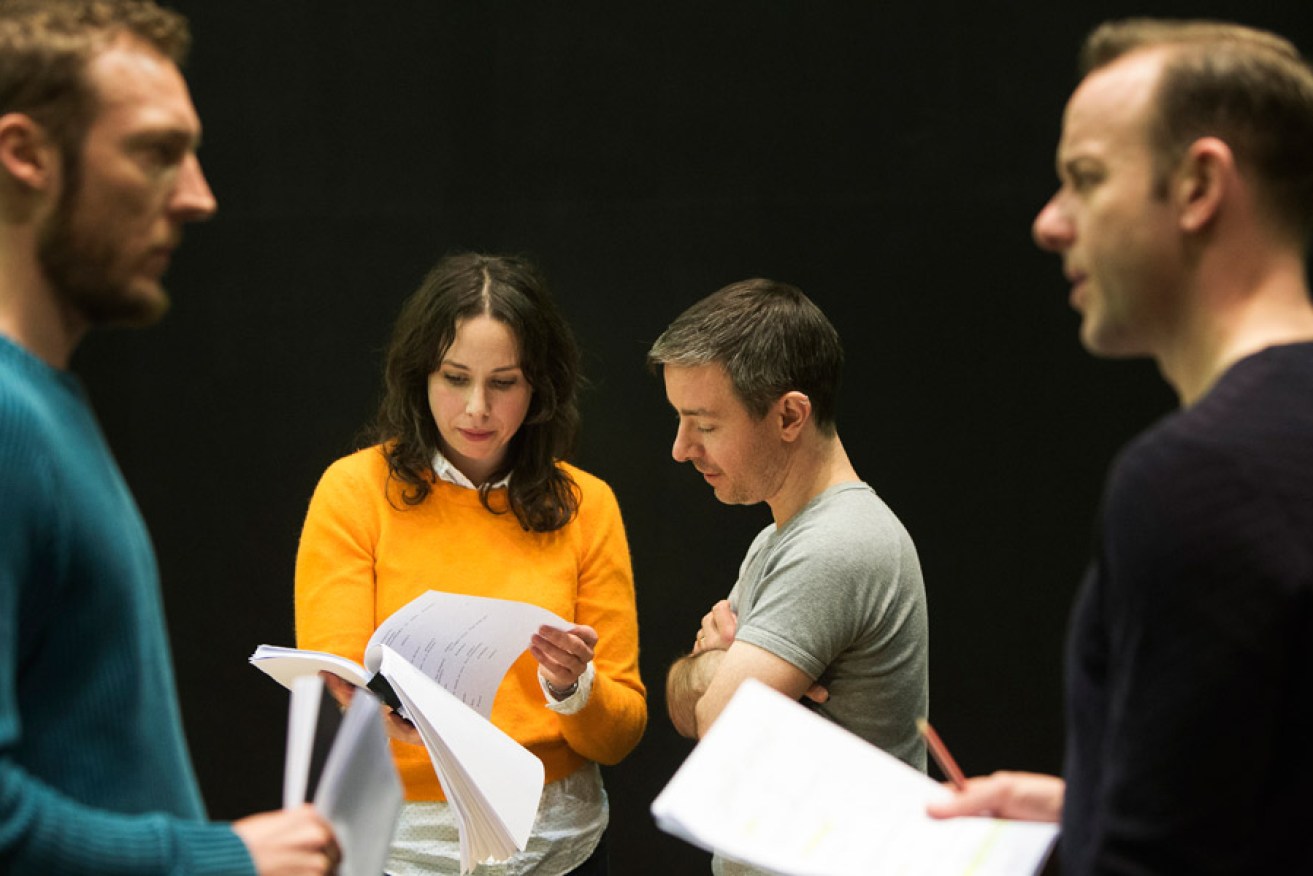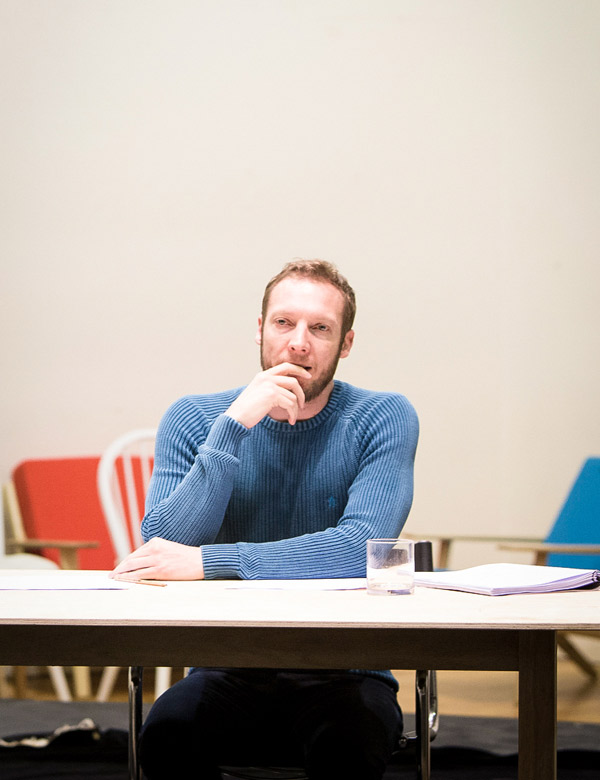Drama mines the depths of betrayal

Nathan O'Keefe, Alison Bell, Geordie Brookman and Mark Saturno in rehearsal for the State Theatre Company production of Betrayal. Photo: Shane Reid
Actor Nathan O’Keefe is often dubbed Adelaide’s favourite clown, but there’s nothing funny about his latest role.
After performing in plays such as Masquerade, Pinocchio and The Comedy of Errors, O’Keefe is now entwined in an intense love triangle in the State Theatre Company’s upcoming production of Harold Pinter’s Betrayal.
And he loves it.
“I absolutely love playing the clown; I love the comedies,” he says. “But I equally love the chance to really explore what it is to be humans, and flawed humans – the depth of humanity and how fragile humans can be, and how that is expressed on stage in dramatic works and classic works.
“It’s really wonderful to get the opportunity to try new things; to jump out of the comfort zone and to be intimidated by some work and frightened by it.”
Betrayal is the story of two best friends – Jerry (played by O’Keefe) and Robert (Mark Saturno) – and Robert’s wife Emma (Alison Bell). The two men have always been close; Jerry was even best man at his friend’s wedding.
But Jerry and Emma have also been having an affair for seven years.
Betrayal is considered one of Pinter’s masterpieces and is semi-autobiographical – although the playwright denied this until late in his life.
Director Geordie Brookman describes it as “a play of great economy and power”; “full of blood, damage and the heavy consequence of impulsive choices”. O’Keefe says it is both intense and complex.
The play explores every type of betrayal: Jerry, for example, doesn’t know that Emma has told her husband about the affair.
“There’s totally no black and white,” says O’Keefe
“There’s so many colours to it and so many shades … there’s no winners, there’s no heroes, but there’s also no clear-cut villains. It’s this really murky, sticky, yucky situation that they’re in.”
Betrayal reunites O’Keefe with Bell, with whom he acted in the Helpmann-nominated State Theatre Company production of Hedda Gabler. He has also worked previously with Saturno, on fast-paced comedy The Complete Works of William Shakespeare (Abridged).
One of the challenges for the Betrayal cast, O’Keefe says, is finding the love and joyful moments between the characters, who are not monsters, but ordinary people.
“So why do they continue to live these lives and hurt each other? It’s a really fascinating exploration of human character.
“Where does that first seed of betrayal begin? That decision, where everything else just follows on and you go: ‘If only I could just start again’.”
Pinter is famous for his subtext and the spaces between his dialogue, which O’Keefe says create opportunities for the cast.
“I was blown away by just how much he puts in there with his famously stark writing. He gives the actor and the creative so much room to explore, but bringing it back to exactly what he wrote.”
The State Theatre production will remain faithful to Pinter’s script and the original time period (1968-77), with a stark setting by designer Geoff Cobham putting the focus firmly on the three individuals at the centre of the drama.
Betrayal is presented in reverse, beginning at the end of the affair in the year 1977. It’s a device often used in contemporary film, but when Pinter wrote the script it was considered an innovative idea.
The result is that audience members immediately see the consequences of the affair. The question, says O’Keefe, is whether they will make snap judgments about the characters, or remain open-minded while the story plays out.
“It’s a challenge, but it’s a good challenge, because you see the repercussions as they happen.
“It doesn’t rely on the twist at the end … you’re actually just given these moments in time, and these consequences, these repercussions, this seven years of life and bad decisions, and you’re left to sit there going: Why? And: Was it worth it?”
Betrayal is being presented by the State Theatre Company of SA at the Dunstan Playhouse from July 24 until August 15.





